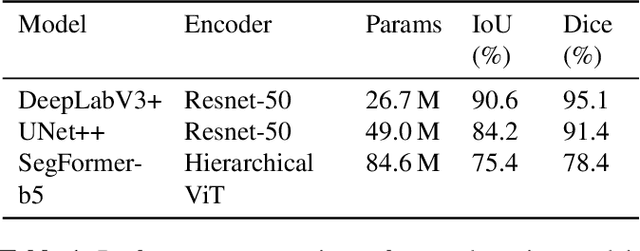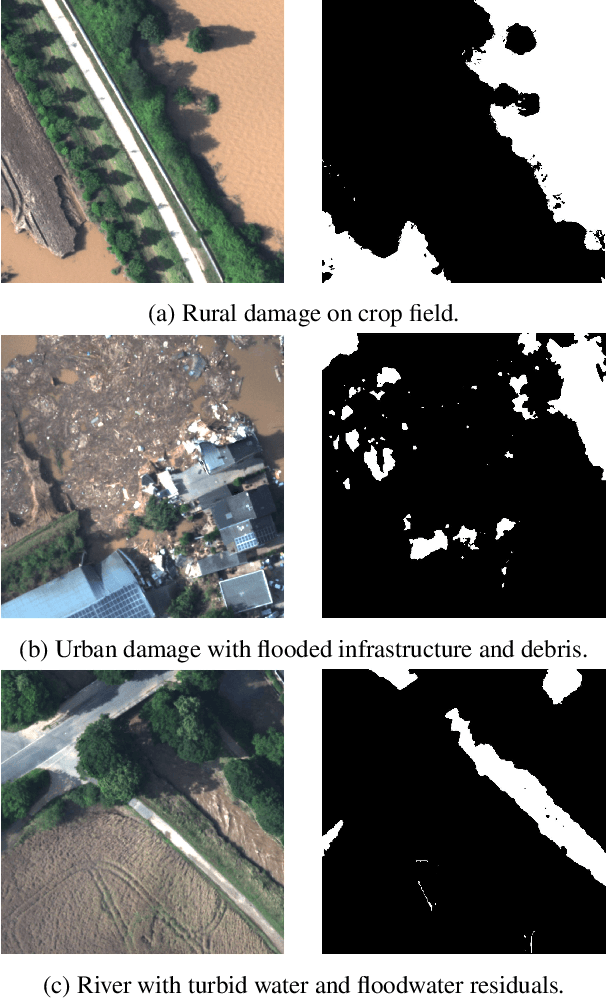Damjan Hatic
Remote Sensing Imagery for Flood Detection: Exploration of Augmentation Strategies
Apr 28, 2025
Abstract:Floods cause serious problems around the world. Responding quickly and effectively requires accurate and timely information about the affected areas. The effective use of Remote Sensing images for accurate flood detection requires specific detection methods. Typically, Deep Neural Networks are employed, which are trained on specific datasets. For the purpose of river flood detection in RGB imagery, we use the BlessemFlood21 dataset. We here explore the use of different augmentation strategies, ranging from basic approaches to more complex techniques, including optical distortion. By identifying effective strategies, we aim to refine the training process of state-of-the-art Deep Learning segmentation networks.
BlessemFlood21: Advancing Flood Analysis with a High-Resolution Georeferenced Dataset for Humanitarian Aid Support
Jul 06, 2024



Abstract:Floods are an increasingly common global threat, causing emergencies and severe damage to infrastructure. During crises, organisations such as the World Food Programme use remotely sensed imagery, typically obtained through drones, for rapid situational analysis to plan life-saving actions. Computer Vision tools are needed to support task force experts on-site in the evaluation of the imagery to improve their efficiency and to allocate resources strategically. We introduce the BlessemFlood21 dataset to stimulate research on efficient flood detection tools. The imagery was acquired during the 2021 Erftstadt-Blessem flooding event and consists of high-resolution and georeferenced RGB-NIR images. In the resulting RGB dataset, the images are supplemented with detailed water masks, obtained via a semi-supervised human-in-the-loop technique, where in particular the NIR information is leveraged to classify pixels as either water or non-water. We evaluate our dataset by training and testing established Deep Learning models for semantic segmentation. With BlessemFlood21 we provide labeled high-resolution RGB data and a baseline for further development of algorithmic solutions tailored to flood detection in RGB imagery.
 Add to Chrome
Add to Chrome Add to Firefox
Add to Firefox Add to Edge
Add to Edge